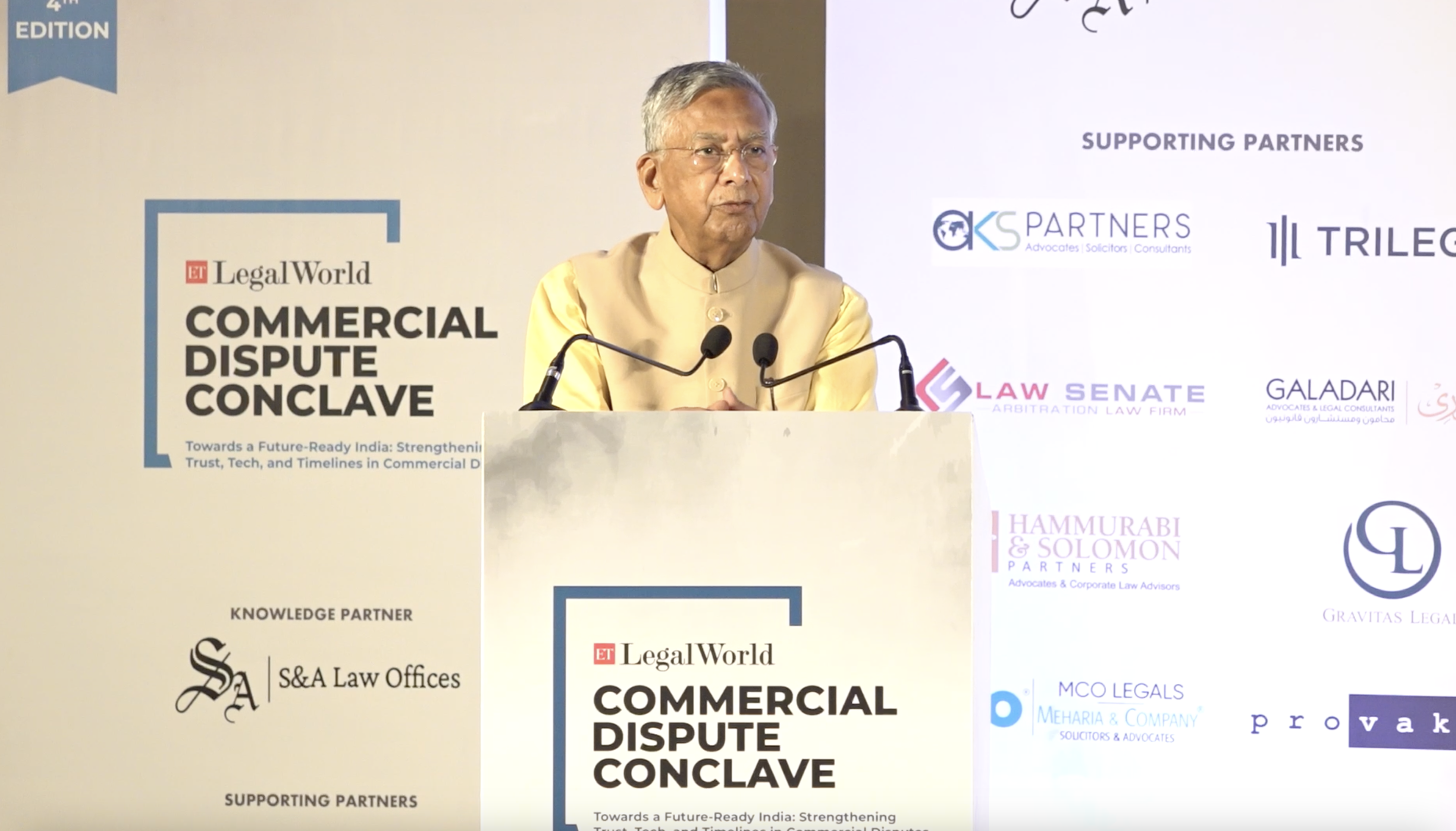
In a forceful keynote at the 4th Economic Times Legal World Commercial Disputes Conclave, India’s Attorney General, R. Venkataramani, called for nothing less than a radical overhaul of the country’s commercial arbitration system. He asserted that incremental fixes or cosmetic changes will never address the deep-seated flaws in the existing adversarial framework—and urged the legal community to embrace a new paradigm altogether.
Why the Adversarial System “Must Go” and new National Working Group
Speaking at The Grand, Vasant Kunj, on September 11, 2025, Mr. Venkataramani argued that the arbitration regime has become “hijacked”—its costs spiraling so high that arbitration now rivals, or even exceeds, court litigation in both delay and expense. What was once envisaged as a “cost-friendly alternative” has turned into, in his words, “a system as costly, if not more costly than going through the court system itself.”He questioned the standard response of limiting court intervention—such as “least intervention by courts”—as insufficient. “Whitewashing, painting, or slightly modifying the architecture will not work,” he said. “It will remain what it is in its fundamentals.” Mr. Venkataramani exhorted lawyers and institutions to “think anew,” likening the current state to a slumber from which they must awaken, and called for saying “bye-bye to the adversarial system.”
Instead of more tinkering with the Arbitration Act, he proposed setting up a national working group to explore new models of dispute resolution. He emphasized that the government itself often reacts too conservatively—“tick boxes options,” he said, rather than bold, structural change—and that much of the impetus must come from within the legal community itself.
He also critiqued the widespread practice of appointing retired judges as arbitrators. According to him, this contributes significantly to delays. While moving away from that practice would generate “national news,” he believes that once a reimagined system is in place, dependence on a handful of individuals—or on retired judges alone—will decrease naturally.
The Conclave itself drew an eclectic mix of senior advocates, law firm leaders, and corporate general counsels, reflecting the diverse ecosystem shaping India’s dispute resolution landscape. Among those in attendance were Dr. Menaka Guruswamy, Senior Advocate, Supreme Court of India; Shweta Bharti, managing partner, Hammurabi & Solomon Partners; Gunita Pahwa, joint managing partner, S&A Law Offices; Sonal Kumar Singh, managing partner, AKS Partners; Chitra Rentala, partner at Trilegal; Rajeev Aggarwal, Partner, Gravitas Legal; Amit Meharia, managing partner, MCO Legals; Raka Roy, partner at Galadari Advocates & Legal Consultants; and S. Ravi Shankar, managing partner at Law Senate.
They were joined by numberous corporate legal heads and high-ranking corporate executives including Vineet Vij, Global General Counsel & Chief Legal Officer, Tech Mahindra; Manjaree Chowdhary, General Counsel & Chief Compliance Officer, Maruti Suzuki; Roop Loomba, Legal Head India and Senior Legal Counsel, AkzoNobel; Pavit Singh Katoch, Group General Counsel, Inshorts; and Amar Sundaram, General Counsel, NEC Corporation India.
Implementation, Capacity, and Global Ambitions
To ensure that reform is meaningful and extends beyond just headline declarations, Mr. Venkataramani laid out a roadmap for capacity building. He urged the creation of national and state-level legal capacity building commissions, to engage local bars—not just those in Delhi and Mumbai but in cities across the ocuntry—and to draw district-level practitioners into the process. He stressed that legal professionals themselves must commit to self-regulation, transparency, and internal reform in cost discipline and procedural efficiencies.
He tied these reforms directly to India’s broader goal of becoming a global hub for dispute resolution. The AG revealed that when he suggested to the Prime Minister that India should aspire to host world-class arbitration and mediation headquarters, the idea was “readily welcomed,” with assurances of government support.
The stakes are high: businesses and investors have long expressed dissatisfaction with disputes that drag out for years, ballooning legal fees, and perceptions of an arbitration culture dominated by elites. Mr. Venkataramani insisted these are not problems that can be solved with more paperwork, more rules, or isolated policy tweaks. Instead, a commitment to re-architecting the system—procedurally, institutionally, and culturally—is required. That includes rethinking who arbitrators are, how they are selected, how much oversight courts should or should not have, and how to empower practitioners outside metropolitan centers.
In closing, the Attorney General challenged both the legal fraternity and corporate sector not merely to observe but to act. Transformation, he argued, will require courage, imagination, and collective energy. “Unless we think anew,” he said, “we will only be running in circles.”

